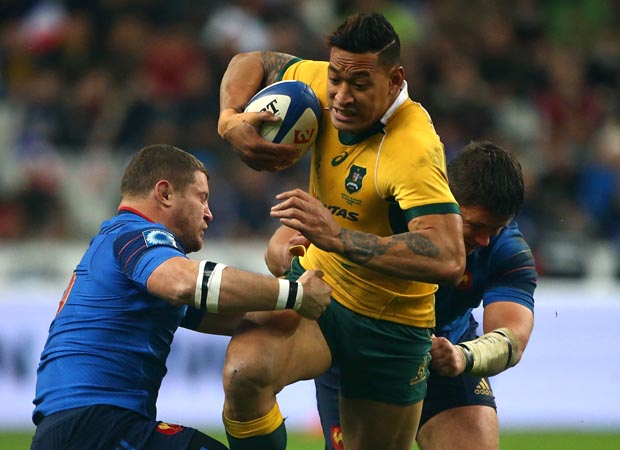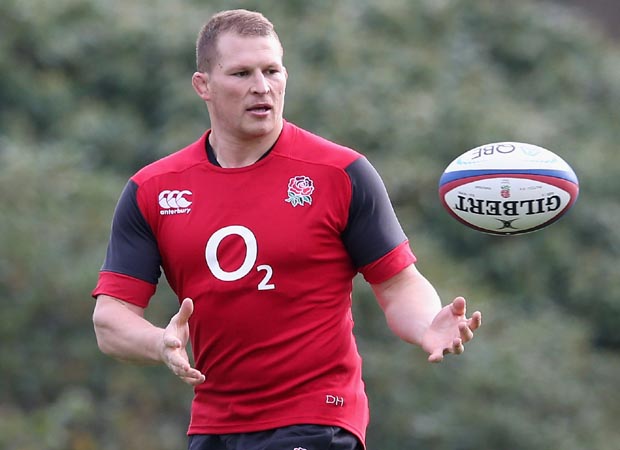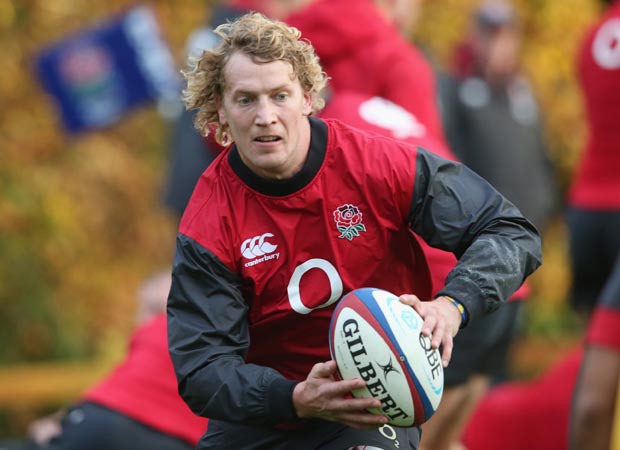 England being ranked fifth in the latest World Rugby (IRB) pecking order is about right. I wasn't surprised by the adverse reaction to England's results and performances this autumn, because some people like to stick the boot in – but I was struggling to understand it so soon after the South Africa game.
England being ranked fifth in the latest World Rugby (IRB) pecking order is about right. I wasn't surprised by the adverse reaction to England's results and performances this autumn, because some people like to stick the boot in – but I was struggling to understand it so soon after the South Africa game.
A lot of it is gut instinct, but I believe it is always easier to criticise than to be positive – just as it easier to defend on a Rugby Union field than it is to attack.
I'm not supporting England blindly because I'm English and wore the jersey. But should we really expect England, whether home or away, to beat New Zealand and South Africa when they are sides who are almost perpetually ranked above them?
Sure, England have strength in depth, but I have asked many times in this column how many of this England side would get into a World XV – or even a Northern Hemisphere XV?
That's it, in a nutshell. I played with a number of great players during my England career, and whether we're talking about Martin Johnson, Jonny Wilkinson or Richard Hill they were bloody good players the first time they pulled on the England shirt.
Johnson's development as an international player was staggering. When he came in for Wade Dooley against France at Twickenham in 1993 he adapted immediately, and it was almost as if there was no change. He just got better with every match, and I do not remember him having a bad game for England.
The truth is that we are not overly blessed now, because there are not many of those world-class players in this current England squad. It's a big contrast to the period from 1988 through to 2003 when England coaches were fortunate to have a rich pool of talent available to them.
So, let's be realistic. Who beats New Zealand? Only South Africa, who are number two in the world, and their successes are occasional rather than regular.

I got frustrated as a player when we did not perform to our best, so I understand the level of expectation and the frustration among England fans with the results so far this autumn. The feeling has been compounded because there was a whiff of a chance to win against both New Zealand and South Africa – but it was only a whiff.
If England had put away their first half opportunities against New Zealand, can we honestly say they would have won? Even so, the biggest disappointment was England not capitalising on New Zealand being down to 14 in the second half and applying an unbearable pressure.
There was a similar pattern of frustration against South Africa. Did the pass have to go from Danny Care, and did Dylan Hartley have to tread on someone? However, it begs the question, if those things hadn't happened would England have won?
In both cases the competitiveness of the England pack kept them in contention, even though the team struggled to apply pressure for the entire match. However, while the forwards were competitive they did not always produce good ball – and in attack against Australia they have to remember how important it is to produce fast, high-grade possession.
It is simple stuff, but quick ball makes the connections in the backline switch on. When I played in the England backline with the likes of Tony Underwood and Jon Webb we usually played off front foot ball – and if it was slow even I would shout out “kick it”!
Where I agree with the criticism of the England backs is that Owen Farrell lacked match fitness and hasn't played well. That is a selection issue, and it has resulted in many England supporters calling for George Ford to be picked at fly-half, even though there have been a few games for Bath where his kicking game has disintegrated.
The England midfield has been unsettled because of injuries and lack of form. However, it is worth remembering that no-one was criticising the England midfield through the last Six Nations, and the 10-12-13 combination of Farrell, Billy Twelvetrees and Luther Burrell lost momentum only because of the administrative error in the New Zealand tour itinerary that meant they couldn't play together until the second Test.

Now, with Farrell coming into the autumn series below par after injury, and loss of form by Twelvetrees, backline cohesion has not been helped. The backs haven't been able to settle, and they are not as together as the England pack is. Even a fully fit Manu Tuilagi would find it difficult to make much of a difference alongside a below par half-back pairing of Care and Farrell.
The question now is whether England can rescue this autumn series with a win over Australia. My view is that the Wallabies are beatable if you stick to a really simple game plan and execute it properly.
You can beat Australia with a tactical plan which can be summed up as kick–territory–defend, because even under new coach Michael Cheika they play too much rugby in their own half. Although they have this capacity to always stay in the game, the Wallabies have not got a great exit strategy from their own half – mainly because they just like to handle the ball.
I played in England teams with better packs than most of our opponents and, especially in the Six Nations, we often put them away with tight low-risk rugby until the last 20 minutes, when we opened up. That's as good a template for England now as it was then, especially against a team like Australia.
England should keep it straightforward and simple, play for territory and execute well, with the aim of pressuring Australia – whose instinct is to play from anywhere – into mistakes.
However, if that is your strategy, you cannot afford to switch off for a second. You have to chase the last kick with the intensity of the first kick. If you miss-time your run as a chaser against Israel Folau you are in trouble. Don't overcommit and hit him in the air, instead get yourself in front of him and make the tackle as soon as his feet hit the ground.
Another strategy is for England to maximise on their strengths. Mike Brown is a great high-ball chaser, so use him in the centre to chase kicks and compete in the air with Folau.
Folau is one of those players who can make breaks from the tightest corners, so keeping him quiet is very important. There are other obvious dangers to England. Give Brendan Foley penalties anywhere within 40 metres of the posts and the Wallaby fly-half's success rate is very high, so discipline is crucial. Tevita Kuridrani is a very powerful elusive centre, and captain Michael Hooper gets everywhere and is a strong carrier. But for all that, England have the game to win.
It's hard to predict what will happen in 10 or 11 months time, but this autumn Test between England and Australia is a big one because of the psychological influence that winning will have ahead of their 2015 World Cup pool game. The England players will want to win because they know that if they lose it will be referred to right up until the moment they meet again.
After playing in three World Cups I can tell you that the feeling you get from playing at home is brilliant and uplifting – and I still believe that England will get through their group despite having to contend with Australia and Wales.
England have not suddenly become a bad side, they have just made poor decisions at crucial times this autumn. They can put that right against Australia, and for my money they still stand a good chance of winning the World Cup.
*This article was first published in The Rugby Paper on November 23.



























